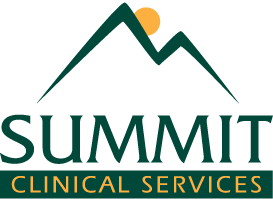Self-care: Summer Routines
Now is the time of year when many of us see our daily and weekly routines change considerably. The school year ends, work schedules may change, more time is spent outdoors, and some of us plan vacations or full summer out of town. We are away from what created structure and predictability for us during the fall/winter months. It can be a great mental health boost to take a break, take a vacation, or simply enjoy the extra hours of sun in the evening, but neurologically our brains thrive with some type of routine.
It’s important to support this natural tendency and continue to have somewhat of a routine, even if larger environmental changes occur. Here are some examples of routine activities that people feel comfortable maintaining daily and are beneficial for mental health:
- Movement (any type of movement that creates joy and makes your body move)
- Schedule for eating (deciding on a number of meals and snacks that supports your metabolism)
- Connection with nature (anything from gardening to a walk in your local state or county park)
- Connection with your family or community (phone calls, story time, or family meals are good examples)
- Work out your mind (puzzles, meditation, work, school, whatever gets your brain moving)
- Care for your space (make your bed, water plants, light cleaning)
These are only examples but are a good place to start when we think about how to shift our “normal” routine to something that works better in the summer. Start by reflecting on what parts of your current routine contribute to your energy and support your mood. Then consider ways to shift these into something workable for your summer or vacation. For example, if you are used to exercising daily at home, continue to exercise daily on vacation. You’ll need to find a hotel gym or nearby park or walking path, but you’ll still be able to move. If you eat snacks between meals at home, find some healthy snacks to carry with you on vacation.
If you’re not on vacation, but your schedule has shifted, use your phone or agenda to remind you to create time for the activities you already know you need. If you’re not dropping kids off at school, it may be hard to remember to have a full breakfast. Make an alarm for it!
The most important part of this is to remember that flexibility is key and there is no one “right way” to meet your needs for routine. If it’s a long-term shift, it may take a week or two to get used to it. If it’s for a vacation, be intentional about creating a plan for self-care during vacation. Take a moment, a breath, and think through what you need. If you’re attuned to what’s best for you (not what’s best for the person next to you or on Facebook), you can’t go wrong.
-Erin Klein, M.A., LCPC




